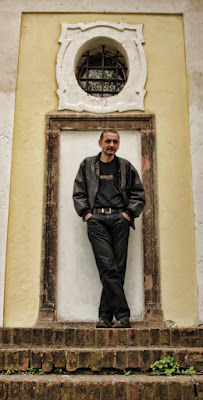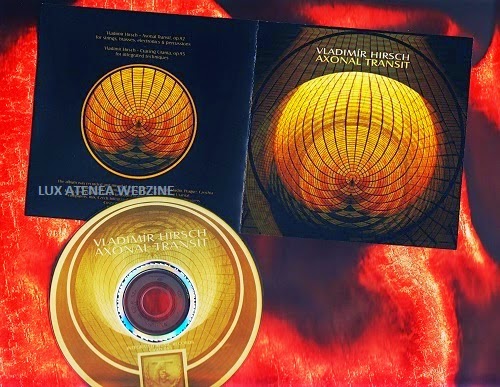Myth No. 1: Czechia is an unknown and possibly grammatically incorrect short name for the Czech Republic. Czechia is rarely used in English because native English speakers do not like to use it.
Fact: The Terminological Committee of the Czech Office for Surveying, Mapping and Cadastre officially codified Czechia in 1993 in its publication “Names of States and their Territorial Parts”. Therefore, Czechia is the grammatically correct short name of the Czech Republic and the English translation of Česko (the short name of the country in Czech). Czechia is not well known and infrequently used because the Czech state and its institutions have not used it despite recommendations issued by the Ministry of Foreign Affairs and the Ministry of Education in the 1990s. A short country name that is not used by the state itself and by its institutions cannot become well known and recognized abroad.
Myth No. 2: German, Russian, Chinese and other foreign languages have spontaneously used their translation of the short name Česko. However, the Czech Republic has become widespread in English-speaking countries. It is pointless to try to convince the English-speaking world about using Czechia as a short country name for the Czech Republic.
Fact: The Czechs have to start using their short country name first, after which English speakers will adopt it in a way similar to the way they adopted short country names such as Belarus, Zimbabwe, Bangladesh, Eritrea or Myanmar. These countries adopted and let the world know their proper short names. The Czechs need to do the same. Authorities of English speaking countries expressed clearly their consent.
Myth No. 3: Czechia is unofficial and has not been approved because Česko is not mentioned in the Czech constitution.
Fact: A short country name does not have to be spelled out in the Constitution. Československo (Czechoslovakia) was not mentioned in the Czechoslovak Constitution either. Czechia is an official short (geographic name) of the country.
Myth No. 4: The name Czechia is a neologism.
Fact: The first recorded use of Czechia was in 1569 in Latin and in 1798 in English. Many other historic evidence of the use Czechia in English is from English, Australian and American press in 19th century. U.S. newspapers commonly used Czechia between 1918 and 1960 to refer to the western part of Czechoslovakia (as opposed to Slovakia, its eastern part) i.e. to the contemporary Czech Republic.
Myth No. 5: Czechia is not a word. It sounds strange.
Fact: Czechia is originally derived from Latin, which is common for numerous other country names in English, such as Austria, Australia, Croatia, Virginia, California, Indonesia, Slovakia, Latvia, Colombia and many more, also including Czech geographic names such as Bohemia, Moravia and Silesia. Czechia might sound strange to some people but so do numerous geographic names derived from foreign languages that are commonly used in English, such as Idaho, Utah, Massachusetts, Lithuania, Zimbabwe, and Belarus.
Myth No. 6: A short geographic name (Czechia) is unnecessary. A political name (the Czech Republic) is sufficient.
Fact: The political name of a country is transient and ignores the historic continuity of a given state territory because it is limited only to the existing state form. In the case of the Czech Republic, it is incorrect to use its political name for various state forms that had existed on its territory before 1993. As such, the political name can never fully replace a permanent geographic name that does not change in response to changing state forms in a particular territory. The use of a contemporary political name for a period before the existence of the current state form is incorrect and impractical. The need for a short name is demonstrated by the fact that the Czech Republic is often erroneously shortened to Czech, Czech rep., CR, C. Rep. or Czecho. In many cases, foreigners continue to use the name Czechoslovakia, although the country has not existed since 1993, and even Czech businessmen have attempted to restore the brand “Made in Czechoslovakia” since “Made in Czech Republic” has failed to become a familiar brand around the world.
Myth No. 7: Czechia is an inappropriate and imprecise historical name because the Czech state had not used it in the past and has used different names instead.
Fact: Other countries, such as Egypt, Greece and Poland, use short geographic names despite the fact that they experienced major territorial changes in the past and had various names throughout their history. Being a neutral country name, Czechia can be used in historic, cultural and spiritual contexts. The transparency and relative simplicity of a short country name will facilitate its international acceptance.
Myth No. 8: There are other countries that exclusively use political names without any problems. Examples include the Dominican Republic or the Central African Republic.
Fact: Although that is true, the vast majority of countries use short geographic names. The Dominican Republic and the Central African Republic are the only two countries in the entire world that do not have readily available short names. With Czechia being standardized and readily available as a short name, the Czech Republic is not the same case. Furthermore, the history of Czech statehood is much longer than its republican political system. Czechia can be applied throughout the entire history of Czech statehood and irrespective of its actually existing political system.
Myth No. 9: The name change from the Czech Republic to Czechia would be too expensive and overall harmful by interrupting the continuity of the Czech Republic. The Czechs need to worry about much more important problems than their short country name in English.
Fact: No change in the country name is involved since the Czech Republic as a political name remains in place and unchanged. The Czech Republic will still be used in situations such as matters of national and international diplomatic protocol and international treaties. It is more appropriate to use Czechia in situations when other countries use their short names. The introduction and the use of Czechia instead of the Czech Republic in these situations can be done gradually with no or minimum expense during the update of the country’s promotional materials. Any additional expense will pay for itself in the form of increased international recognition of the country because of its clear and unambiguous name, including its international brand name “Made in Czechia”.
Myth No. 10: Czechia has the same meaning as Bohemia. Czechia thus excludes the regions of Moravia and (Czech) Silesia from the Czech state.
Fact: The same wrong argument can be made that the Czech Republic does not include Moravia and (Czech) Silesia in its name and the same could be said about the Czech lands. Czechia covers exactly the same geographic area as the Czech Republic and it is therefore composed of Bohemia, Moravia and (Czech) Silesia. Although Czechia was originally also used as a synonym for Bohemia, it has not been used in this sense since the beginning of the 20th century. Since then Czechia has been used to denote the entire territory inhabited by the Czech speaking population, which is composed of three historic Czech lands: Bohemia, Moravia and (Czech) Silesia.
Myth No. 11: Czechia is less representative than the Czech Republic and it is confusing because it is ambiguous.
Fact: Undemocratic and authoritarian regimes around the world have frequently included “republic” in their country names in order to increase their legitimacy. As such, the term “republic” has lost its former glamour during the 20th century. Czechia [ˈtʃɛki.ə] is unambiguous in both spoken and written English. As a matter of fact, the Czech Republic [tʃɛk rɪˈpʌb.lɪk] is much more ambiguous than Czechia since the term “Czech” [tʃɛk] is pronounced the same way as check and cheque, which have several meanings as a noun and verb in spoken English, while “republic” is ambiguous because it is used in political names of the majority of countries.
Myth No. 12: Czechia ˈtʃɛki.əˈ can by pronounced as ˈtʃɛtʃi.əˈ
Fact: If this was the case then “Czech” [tʃɛk] could be pronounced as [tʃɛtʃ]. There are numerous words in English (286 to be exact) in which “ch” is pronounced as [k] and not [tʃ] and are pronounced similarly as “Czech” [tʃɛk], such as architect, ache, anarchy, anchor, chemistry, chaos, epoch, and mechanism. English pronunciation is variable and English speakers simply have to learn the pronunciation of particular words, such as blood – mood or head – steam.
Myth No. 13: Czechia is an unsuitable short name for the Czech Republic because it can be easily confused with Chechnya.
Fact: Poor knowledge of country names or geography by some people should not be a reason for refusing a particular country name. There are numerous countries with more similar names than Czechia/Chechnya, such as Austria/Australia, Iran/Iraq, India/Indonesia, Mali/Malawi, Niger/Nigeria, Gambia/Zambia, Slovakia/Slovenia and even Georgia/Georgia (a U.S. state). None of these countries has decided to give up its short name and use its political name exclusively because of a possible confusion with another country (region). Czechia can be confused with Chechnya in the same way the Czech Republic can be confused with the Chechen Republic. The chance of actual confusion of Czechia and Chechnya during various diplomatic, international scientific or sports events is almost zero since Chechnya is not an independent country and does not act as a sovereign entity at the international scale.
Myth No. 14: Czechia is too similar to German „Tschechei“ that was used by Nazi Germany as a derogatory name for the occupied Czech territory during the Second World War.
Fact: Czechia is unrelated to the German term „Tschechei“ … and these two terms are pronounced differently in English and German. Although Germans had used “Tschechei” before the Nazi period, Czechia had been used many years before Germans first used “Tschechei”. Today, “Tschechei” is rarely used in Germany because Germans use „Tschechien“. If “Tschechei” is used it does not need to be necessarily viewed as a pejorative term since it was created in a similar way as names for other countries in German, such as Slowakei and Türkei.
Myth No. 15: The selection of the proper short country name must be the outcome of a democratic public discussion.
Fact: The November 2014 statement of the Terminological Committee of the Czech Office for Surveying, Mapping and Cadastre states: “According to the article 3 of Act 1994/200 on Land Surveying, the standardization of names of settlement and non-settlement units is a land surveying activity in public interest and its results and recommendations should be followed by national and local state institutions. The position of the Terminological Committee of the Czech Office for Surveying, Mapping and Cadastre, an advisory authority of the Czech Office for Surveying, Mapping and Cadastre for the codification of country names, on the use of the name Česko and its foreign language variants (Czechia, Tschechien, Tchéquie, Chequia…) is positive. This position on the use of one-word name Česko and its equivalents in foreign languages has not changed since 1993. The experts unequivocally recommended the use of “Czechia” in English and its variants in other language (Tschechien, Tchéquie, Chequia etc.). This is not an opinion but the outcome of the process of standardization.” – This decision about the name “Czechia” has been made by those who are qualified by law to make it.
Vladimír Hirsch, Petr Pavlínek, Zdeněk Kukal
© Czechia Civic Initiative, Praha, December 2014





















